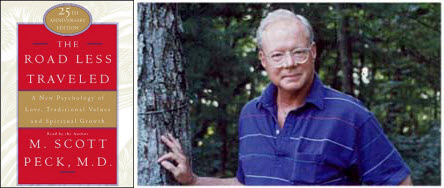
Almost 40 years ago now M. Scott Peck, in THE ROAD LESS TRAVELED, contended that discipline is the key not only to normal adult human functioning but to spiritual growth as well.
Discipline in the relevant sense is the habit of constructively responding to problems rather than avoiding them, and there are four basic techniques involved: "delaying gratification, assumption of responsibility, dedication to the truth or reality, and balancing."
That list seems to represent, in Peck's mind, roughly a chronological order in human growth. Even young children can figure out that it makes sense to delay gratification, that is to forgo one bit of candy now in order to get two bits later. At the other end of that list, though, balancing, one decides which of "conflicting needs, goals, duties, responsibilities, directions" to give up, and making such decisions, making them well, is a lifelong challenge.
There is a connection between Peck's serious point here and Gilbert's humorously intended lyrics about a "policeman's lot," quoted yesterday. A policemen, at least one of the sort envisioned in Pirates of Penzance, would like to be a friendly chap, amiable to anyone who is willing to be amiable with him. That sort of live-and-let-live life is a "happy lot." But, alas, the dedicated constable must often give that up and arrest even amiable chaps in the pursuance of his duty.
Comments
Post a Comment